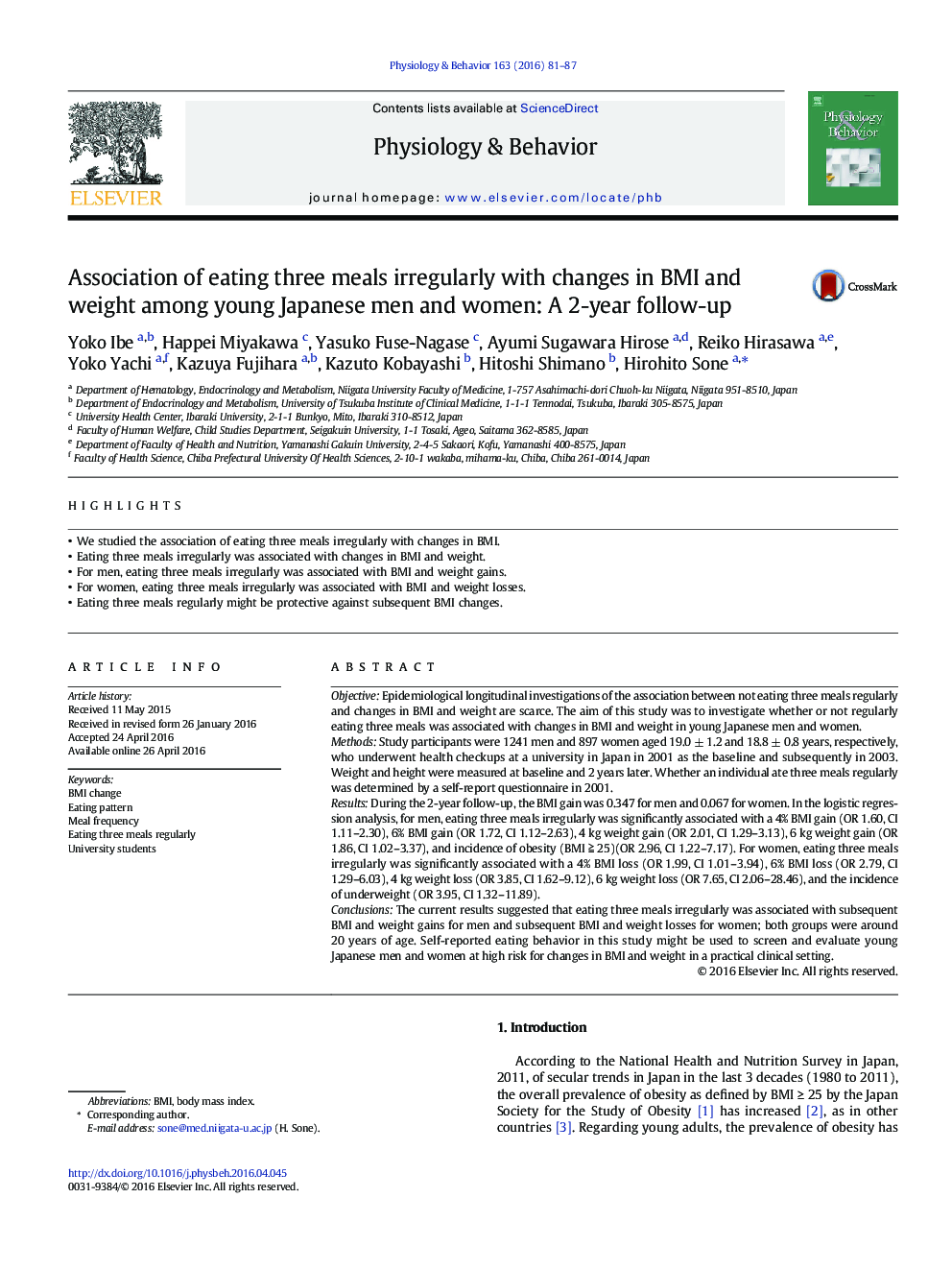| کد مقاله | کد نشریه | سال انتشار | مقاله انگلیسی | نسخه تمام متن |
|---|---|---|---|---|
| 5922890 | 1571155 | 2016 | 7 صفحه PDF | دانلود رایگان |

- We studied the association of eating three meals irregularly with changes in BMI.
- Eating three meals irregularly was associated with changes in BMI and weight.
- For men, eating three meals irregularly was associated with BMI and weight gains.
- For women, eating three meals irregularly was associated with BMI and weight losses.
- Eating three meals regularly might be protective against subsequent BMI changes.
ObjectiveEpidemiological longitudinal investigations of the association between not eating three meals regularly and changes in BMI and weight are scarce. The aim of this study was to investigate whether or not regularly eating three meals was associated with changes in BMI and weight in young Japanese men and women.MethodsStudy participants were 1241 men and 897 women aged 19.0 ± 1.2 and 18.8 ± 0.8 years, respectively, who underwent health checkups at a university in Japan in 2001 as the baseline and subsequently in 2003. Weight and height were measured at baseline and 2 years later. Whether an individual ate three meals regularly was determined by a self-report questionnaire in 2001.ResultsDuring the 2-year follow-up, the BMI gain was 0.347 for men and 0.067 for women. In the logistic regression analysis, for men, eating three meals irregularly was significantly associated with a 4% BMI gain (OR 1.60, CI 1.11-2.30), 6% BMI gain (OR 1.72, CI 1.12-2.63), 4 kg weight gain (OR 2.01, CI 1.29-3.13), 6 kg weight gain (OR 1.86, CI 1.02-3.37), and incidence of obesity (BMI ⧠25)(OR 2.96, CI 1.22-7.17). For women, eating three meals irregularly was significantly associated with a 4% BMI loss (OR 1.99, CI 1.01-3.94), 6% BMI loss (OR 2.79, CI 1.29-6.03), 4 kg weight loss (OR 3.85, CI 1.62-9.12), 6 kg weight loss (OR 7.65, CI 2.06-28.46), and the incidence of underweight (OR 3.95, CI 1.32-11.89).ConclusionsThe current results suggested that eating three meals irregularly was associated with subsequent BMI and weight gains for men and subsequent BMI and weight losses for women; both groups were around 20 years of age. Self-reported eating behavior in this study might be used to screen and evaluate young Japanese men and women at high risk for changes in BMI and weight in a practical clinical setting.
Journal: Physiology & Behavior - Volume 163, 1 September 2016, Pages 81-87